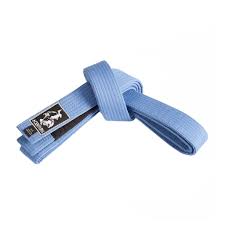The phrase timing is complicated in the art of jiu-jitsu. It’s defined as, “the choice, judgment, or control of when something should be done.” But that interpretation does little to explain the intuition required to understand how to implement those choices.
Timing concerning jiu-jitsu is thouht to be the component that separates the elite level belts from one another. But, ask a black belt what timing means and you’ll usually get a convoluted answer deeply entwinded in the mysteries of our art.
The amount of jiu-jitsu techniques a purple knows compared to a black belt is similar. So, by the time a practitioner achieves a purple belt, they have a firm understanding of the “What” from all positions. For example, purple belts base their actions primarily on their strengths. A purple belt understands what a kimura is because it has worked for them often. So now, because the technique has proven effective, they focus on attacking it directly and finishing regardless of resistance.
As a result, purple belts display an aggressive approach to live rolling, which serves their purposes. A good purple belt can become very successful by attacking what they know well, and their understanding of their favorite moves develops significantly through this pursuit. But techniques with less successful execution rates regularly get labeled non-essential and are not examined appropriately.
Advancement past this stage requires an equal knowledge of an opponent’s will as your own. Grapplers must be able to answer the more critical questions of “when” and, most importantly, “why” to move on. Timing represents the answers to those questions.
Human Chess is an analogy often used to explain BJJ. Black belts perform techniques in tandem while rolling the same way chess players string moves together to exert pressure, confuse, or even make a sacrifice for the end game. But that knowledge doesn’t evolve from an approach focused solely on your own game. Instead, these high-level grapplers concentrate equally on their opponent’s movements, hopefully allowing them to react to moves before they’ve been made.
By contrast, white belts and blue belts spend weeks and months learning how the pieces move by learning individual techniques, and this task takes the time it deserves. Every position of jiu-jitsu has hundreds of technique options, and by the time a grappler puts on a purple belt, they are aware of most of them but typically only focus on the few that regularly work.
Part of the reason for this neglect is arrogance and insecurity. purple belts need to win, and every roll is a struggle to conquer and become better. Losing a position or getting submitted represents a setback to their improvement. Purple belts are formidable rolls because they put all they have into everything they do. But it falls short when they realize their bread and butter attacks quit becoming as effective when training partners start to catch on to their strengths.
Getting past that plateau is a complicated process. It will require working on vulnerable game elements that leave grapplers exposed. Most purple belts spent their last three to five years fighting to stay alive, and they have now just learned to be dominating forces. So, the thought of going back to the submissive white belt they finally conquered is as hard to swallow as it is vital for advancement.
But working on weaknesses carries a secondary function that will not become apparent immediately. If a grappler’s top game is their best attribute, they typically are guard passers. Their style revolves around passing the guard to advance a position or setting up opportunities for submission off of their guard passing attempts. As a result, their bottom games may not be as evolved. So, instructions will explain to them that to advance to the next level, they will need to focus on improving their guard play.
Most professors will agree that a brown belt needs to be a proficient grappler from both top and bottom positions, and to get your brown belt, you need to have a functioning guard. The student will still have preferential strengths, but they will be confident that both aspects of their game are secure after they put the time in.
The guard play vs. guard passing analogy continues to expand when examined from a different angle. By delving deeply into vulnerabilities, grapplers learn how to defeat an opponent trying to implement “their” game plan. A grappler learns what to expect from his opponent while attempting to pass their guard. Not because they observed it during the process, but because they worked hard at improving their guard retention and know from first-hand knowledge what to expect and how to react while being passed. To take something apart, you need to know how to put it together first.
Timing evolves from the awareness of more than your individual intent on the mats. But, unlocking this box to release its secrets requires equal dedication to understanding an opponent’s plan and your own. Gaining that experience means letting go of your ego and getting tuned up again while trying new things to gain knowledge of an opponent’s point of view.
Along the road to a black belt, a jiu-jitsu practitioner will endure many setbacks. Some will be physical, but the most important to overcome will be the mental challenges required to grow. Timing develops when a grappler becomes aware that their process to brown belt and beyond only starts when they let go of the recent dominance they’ve earned by jumping back into the fires from which they escaped.









